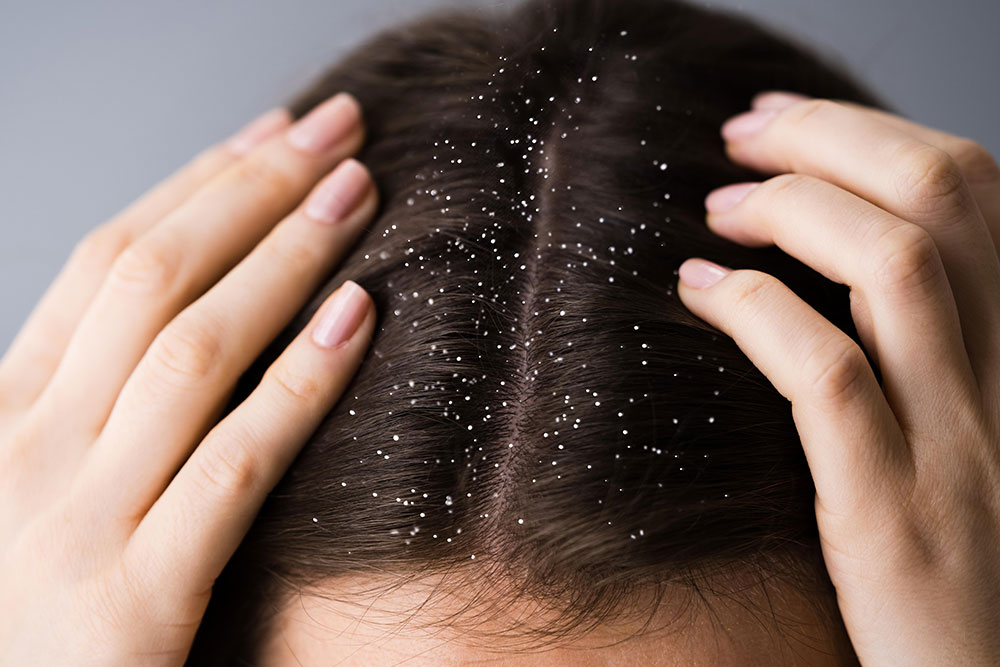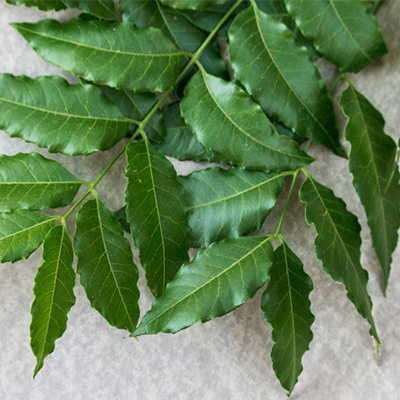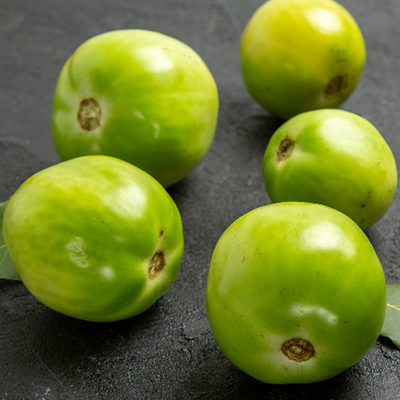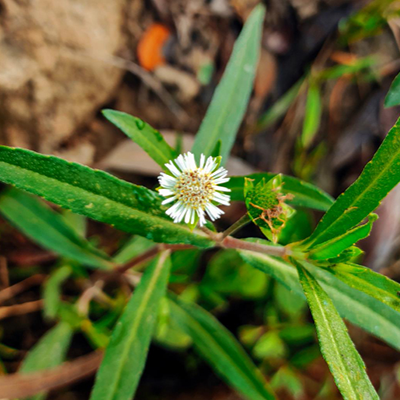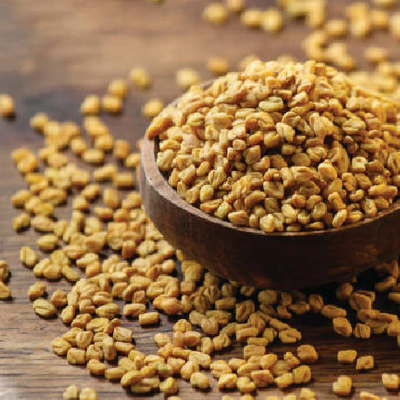Dandruff is a common scalp condition characterized by the shedding of white or yellow flakes of dead skin from the scalp. It is often accompanied by itching and, in severe cases, redness or irritation. Dandruff is not contagious but can be embarrassing and difficult to manage.
Dandruff affects up to 50% of the world's population.
It is most common in individuals between puberty and middle age but can occur at any age.
Men are more likely to have dandruff due to higher sebum production. Dandruff tends to worsen in winter due to dry air and improve in summer.
You should consult a doctor in case of
- Severe symptoms: Persistent, excessive flaking, itching, or redness.
- Hair loss: Accompanying dandruff with significant hair thinning.
- Signs of infection: Pain, swelling, or pus formation.
- No improvement: Over-the-counter treatments fail after a few weeks.
- Skin disorders: Suspected psoriasis, eczema, or seborrheic dermatitis.
Causes of Dandruff
- Dry Skin: Most common in cold weather.
- Oily Skin (Seborrheic Dermatitis): Red, greasy skin covered with flaky scales.
- Malassezia Yeast Overgrowth: A fungus naturally present on the scalp that can multiply excessively.
- Skin Conditions: Psoriasis or eczema can lead to dandruff-like flaking.
- Product Sensitivity: Reactions to hair care products (contact dermatitis).
- Poor Hygiene: Irregular shampooing may allow oil and dead skin to build up.
- Lifestyle Factors: Stress, diet, and hormonal changes can exacerbate dandruff.
In Ayurveda, dandruff is termed "Darunaka", primarily described as a disease of the scalp. It is mentioned in classical Ayurvedic texts such as Charaka Samhita and Ashtanga Hridaya, where it is associated with imbalances in the Vata and Pitta doshas, and malfunctioning of the scalp's natural processes.
Dominance of Vata results in dryness of the scalp, leading to flaking, itching, and brittleness. Leads to improper lubrication of the scalp, making it prone to scaling. Aggravated Pitta generates excess heat, causing inflammation, irritation, redness, and increased susceptibility to infection. Dryness (Vata) and inflammation (Pitta) together disturb the natural health of the scalp.
According to Ayurveda, the symptoms include:
- Kandu: Severe itching of the scalp.
- Twak Sphutana: Cracking or dryness of the skin on the scalp.
- Rukshata: Roughness and loss of luster.
- Shirah Kandu: Frequent irritation of the scalp.
- Twak Parushya: Hardening or thickening of scalp skin due to dryness.
Ayurvedic Line of Treatment
Treatment for Darunaka aims to balance the doshas, eliminate toxins, and restore scalp health.
Shodhana (Cleansing Therapies):
- Virechana (Purgation): Removes excess Pitta dosha from the body using herbs like Trivrit or Aloe vera.
- Nasya (Nasal Therapy): Medicated oils like Anu Taila are instilled in the nostrils to balance doshas in the head region.
- Abhyanga (Oil Massage): Regular scalp massages with oils like Brahmi or Bhringraj Taila to moisturize and soothe the scalp.
Dietary Adjustments:
- Favor foods that pacify Pitta and Vata, such as sweet, cooling, and moist foods.
- Avoid spicy, sour, and excessively salty foods.
Lifestyle Modifications:
- Maintain proper scalp hygiene.
- Avoid stress and improve sleep patterns.
- Practice yoga and Pranayama to balance mind and body.
Herbal Remedies for dandruff
Neem (Azadirachta indica):
Antifungal properties to combat Malassezia.
Amla (Indian Gooseberry):
Strengthens the scalp and prevents flaking.
Bhringraj (Eclipta alba):
Nourishes the scalp and balances doshas.
Fenugreek Seeds:
Anti-inflammatory and moisturizing effects.
Medicated Oils:
- Coconut oil with neem or camphor for antifungal effects.
- Bhringraj oil or Brahmi oil for scalp nourishment.
Hair Masks:
- Aloe Vera Gel: Soothes itching and hydrates the scalp.
- Yogurt and Lemon: Reduces dandruff-causing fungus.
Preventive measures
- Avoid causative factors such as unhealthy diet and lifestyle habits.
- Regularly oil the scalp to maintain moisture and health.
- Use herbal shampoos and mild cleansers.
- Perform seasonal detoxification to balance doshas and prevent Ama accumulation.
- By addressing the root causes and dosha imbalances, Ayurveda provides a holistic approach


